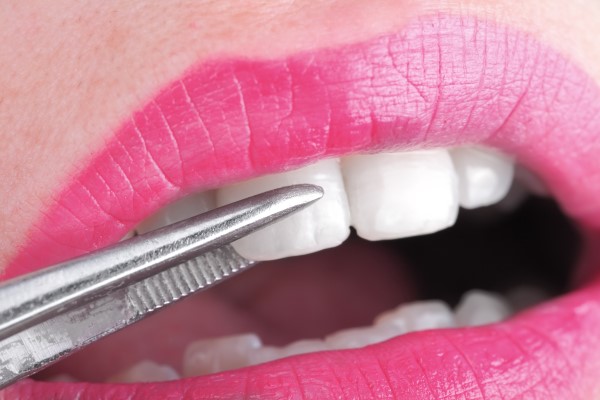Pros and Cons of Veneers

Dental veneers are thin shells of porcelain or ceramic bonded to the front side of the tooth. They serve as an easy and effective way to correct and hide cosmetic and functional problems. Since the procedure is irreversible, you need to consider the pros and cons of veneers before committing yourself to it.
Pros of veneers
The following are benefits offered by veneers:
Whiten your smile easily
Drinking coffee, smoking and eating strongly pigmented foods over the years eventually make their mark on the teeth, causing them to look rather unappealing in shades of yellow or brown. A dentist can whiten a discolored tooth, but the stains are bound to reoccur. Patients who are looking for a long-lasting and reliable way to whiten their smile can turn to dental veneers. They are highly resistant to stains, and patients can worry less about discoloration.
Correct minor cosmetic issues
Dentists typically correct slightly crooked or gapped teeth with orthodontic treatment, but veneers can also be a quick solution. Veneers are bonded to the tooth surface so they do not change the tooth's position, but they can mask minor orthodontic issues after application. The natural teeth may still have a gap or crookedness, but no one will be able to tell aside from the patient and their dentist.
Restore damaged enamel
The enamel is resilient but not indestructible. The enamel can yet deteriorate from aggressive tooth brushing, decay or acidic foods and drinks. Acid reflux disease can also produce stomach acid that damages the enamel. The enamel is not regenerative and will, therefore, not grow back once it is lost. However, it can be replaced by veneers. Veneers are effective for cases of enamel erosion.
Cons of dental veneers
The drawbacks of dental veneers include:
High cost
The cost of getting veneers depends mostly on the patient’s geographical area, the dentist they frequent and the number of affected teeth. They are generally costly. Patients can discuss payment and financing options with their dentist before proceeding with treatment.
Increased tooth sensitivity
Some patients may notice increased tooth sensitivity after receiving new dental veneers. It is normal to feel sensitive to hot or cold temperatures in the first 24 to 48 hours after the procedure, but it eventually disappears. Tooth sensitivity is painful and inconvenient, but the dentist will recommend some products to tackle the situation. This may include using a desensitizing toothpaste to relieve the pain.
The procedure is irreversible
Veneers are regarded as a permanent procedure since it requires the dentist to alter the shape of the natural teeth to place them correctly. The dentist will trim away some of the enamel. This means that the teeth will always need protection if the veneers are taken off.
In conclusion
Dental veneers present an excellent way to cover cosmetic imperfections of the smile, such as crookedness, damage and discoloration. You need to consider the pros and cons of getting veneers. If you want to know whether veneers would be right for you, contact our office for a consultation.
Request an appointment here: https://frankforddentalcare.com or call Frankford Dental Care at (215) 302-1746 for an appointment in our Philadelphia office.
Check out what others are saying about our services on Yelp: Read our Yelp reviews.
Recent Posts
Not only does replacing missing teeth restore the smile’s appearance, but it also enhances oral health and helps preserve the jawbone. Dental implants are a reliable, durable solution for patients who require multiple tooth replacements, as they provide stability and a natural look and feel. There is more than one implant option available, with each…
Dental implants can provide a long-lasting solution for tooth loss. Many people choose this option because it looks and feels natural. Understanding the purpose of dental implants and how they work is key to helping you decide if dental implants are right for you.Dental implants are small titanium posts placed into the jawbone to replace…
Most people develop a cavity at some point in their lives, but children are especially prone to tooth decay. Dental sealants can be used to help lower the risk of getting cavities, protecting a child's teeth for many years. This supplemental treatment offers many benefits and is recommended by most dentists for virtually all children…
Your dentist may recommend a dental bridge if your case needs it. Every patient has a different set of needs. Proper assessment allows the dentist to suggest the right dental replacement. Here are the details on when a dental bridge may become your dentist’s recommendation.Dentists often encourage their patients to stop consuming tobacco. Following this…


